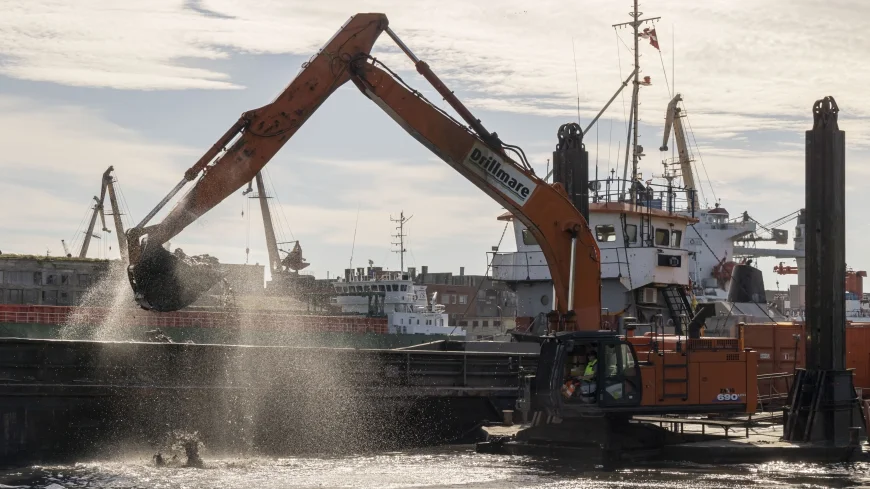A technical-economic assessment for the development of the historically polluted sediment deposit site of the Karosta Canal of the Port of Liepaja has been developed
In the period from August 1 to October 31, 2024, the Liepaja Special Economic Zone Authority implemented the Norwegian Financial Instrument 2014-2021. "Elaboration of the technical-economic assessment for the development of the historically polluted sediment
deposit site of the Karosta Canal of the Port of Liepaja", which was a logical continuation of the remediation works carried out so far.
Despite that a number of studies have been devoted to the environmental situation and remediation works of the Karosta Canal, until now no research had been carried out on further development of the contaminated sediment deposit site, incl. limitation of further
spread of polluting substances and developing alternatives for the development of the deposit site and evaluating management scenarios.
As part of the initiative, the Liepaja SEZ Authority cooperated with Norwegian partners - the Norwegian Water Research Institute (NWRI) and the Norwegian Geotechnical Institute(NGI). Both cooperation partners have considerable experience not only in the remediation of historical pollution of the marine environment, but also in creation of contaminated sediment disposal sites and their subsequent management.
Based on the preliminary investigation of the situation, the Norwegian partners indicate the need to carry out elimination of the remaining polluted areas of the Karosta Canal bed, which are characterized by the highest concentration of polluted substances. As a result, within the framework of the final phase of the remediation works, removing an additional 100,000 m3 of historically polluted sediment from the Karosta Canal bed, it would result in
up to 196 tons of hazardous chemicals removed from the Karosta Canal.
The Karosta Canal of the Port of Liepaja and the historical pollution therein is a unique polluted site that degrades the environment of the Baltic Sea, not only in Latvia, but also on the scale of the entire Baltic Sea region. Since 1994, the Liepaja Special Economic Zone Authority has been carrying out targeted activities aimed at environmental recovery of the Karosta Canal. The depositing site of the historically polluted sediments of the Karosta Canal is a specially demarcated part of the Karosta




